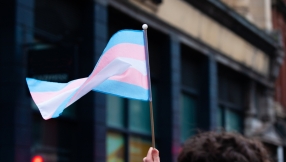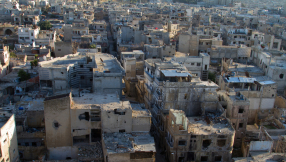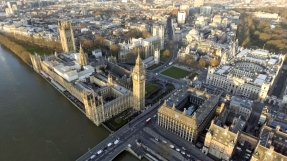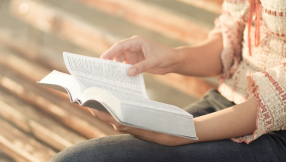On Sunday, November 5, 2017, a man dressed in all black wearing a ballistic vest exited a vehicle and started firing a Ruger AR 'assault-type rifle' outside First Baptist Church in Sutherland Springs in Texas. The gunman then entered the church, where services were underway, and continued to fire. Twenty-six people were killed and 20 were injured in this small Texas town.
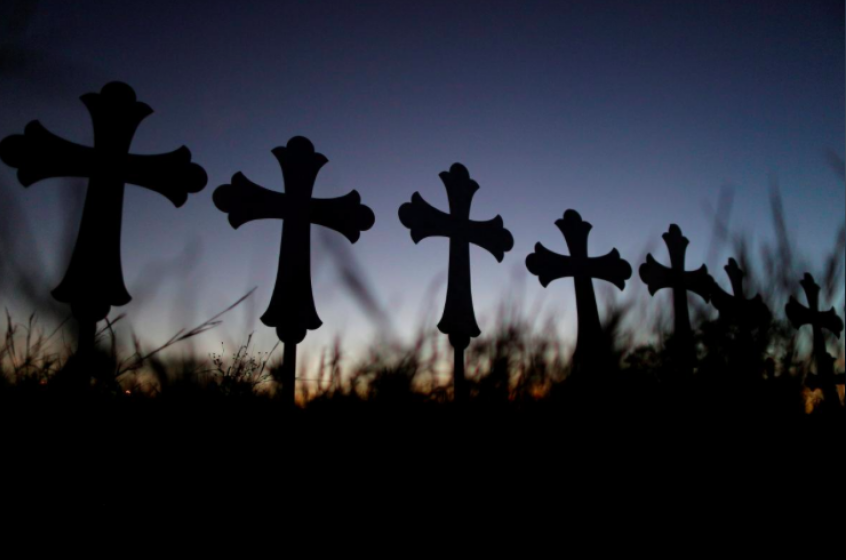
On Sunday, September 24, 2017, a masked man pulled into the parking lot of Burnette Chapel Church of Christ inAntioch, Tennessee as the congregation closed out its worship service. Once church members began leaving, the man exited his vehicle and shot Melanie Crow Smith, a 39-year-old mother of two, multiple times before bursting into the sanctuary. He opened fire, injuring eight other churchgoers, including Minister Joey Spann. Spann was shot in the chest and the hand. As he lay on the floor expecting to die, he asked forgiveness for the shooter.
The new American reality is that there seems to be no safe place when it comes to gun violence. Not even our places of worship.
Americans are growing both weary of and numb to reports of mass shootings such as the incidents in Sutherland Springs, Texas and Antioch, Tennessee. Statistics show that mass homicides are now occurring in schools, houses of worship, and other public spaces almost daily in America, and that as many as 93 Americans are killed by gun violence each day.
In a recent article in Christianity Today, National Association of Evangelicals president Leith Anderson acknowledged that while many evangelical leaders own guns and overwhelmingly support the Second Amendment, they are still grieved when guns are used to take innocent lives.

These church shootings are reminiscent of the massacre in Charleston, South Carolina at Mother Emanuel AME Church in 2015 where, one fateful Wednesday evening during a Bible study, a young, white male entered the sacred space, was greeted by worshipers, sat and listened, and then unexpectedly pulled out his weapon and opened fire, killing nine and injuring others. As Americans, we mourned that tragedy. It affected me personally as well. I am not only a pastor in the African Methodist Episcopal Church (AME), but I too have been directly affected by senseless gun violence: My 25-year-old mother, Sharon Neal, was killed by gun violence in the summer of 1980; and just last year, my 18-year-old nephew, Kevin Neal Jr, was shot and killed. Because I know what it's like to lose a loved one in this way, I am passionate about gun-violence prevention.
Gun violence is not just an urban problem, though, as some would like to believe. It can and does happen in small towns too, as we have just witnessed in the rural town of Sutherland Springs. It is a national epidemic — an American concern — not a demographically divided one. In fact, more people die from gun violence in the United States than any other country. Preventing senseless acts of gun violence and supporting survivors is a cause that all Americans, whether they own a gun or not, can and should get behind.
Because I am a pastor, and because I have lost loved ones to gun violence, people ask me how the church and faith community should respond whenever another church shooting occurs.
What can we do?
It is certainly clear that our first response must be in the likeness of Christ — full of forgiveness and love. We are instructed in Scripture to be peacemakers. This latest tragedy is an opportunity for the church to be engaged beyond the political rhetoric of gun debate. We can share our faith with those who have been directly or indirectly impacted by gun violence. We will remember the innocent lives that were lost at First Baptist Church Sutherland Springs, Burnette Chapel and Mother Emanuel AME and so many others over the years. We will lift up the surviving loved ones of the more than 30,000 people who are lost annually to gun violence. We will pray for the protection of us all. We will rise and couple these prayers with action. That's why I, along with other Christian leaders and pastors, have signed a petition to start this urgent and necessary conversation and to demand action. I hope you will join us in signing.
Though the issue of gun ownership and use in the US is a divisive one, when it comes to caring for the well-being of our fellow humans, it does not matter what side of the argument you are on: If you're a Christian, you are called to love your neighbor as yourself. It's time for the church to have the uncomfortable conversations about common sense gun legislation, responsible gun ownership and storage. It's time to use our churches as support sites for gun violence survivors. It's time to preach against the myths of gun violence as an urban community problem.
Lorenzo T. Neal is an author, radio host and the pastor of the New Bethel African Methodist Episcopal Church in Jackson, Mississippi. Lorenzo was first impacted by gun violence in 1980 when his 25-year-old mother was shot and killed in a domestic violence incident, and just last year, he lost his 18-year-old nephew to gun violence. Today, Lorenzo is committed to preventing other individuals, families and communities from experiencing the devastating pain and loss from gun violence by sharing his story with other survivors, advocating for common sense gun legislation and responsible gun ownership.
Prayer Warriors Against Gun Violence is a social community of Christians who have lost loved ones to gun violence or feel called to intercede for those who are grieving. With more than 11,000 followers on Facebook, Prayer Warriors Against Gun Violence believes in the power of prayer to change the nation and bring an end to these tragedies. To learn more about Prayer Warriors Against Gun Violence or join the community, follow them on Facebook @PrayToEndGunViolence.










